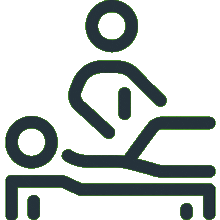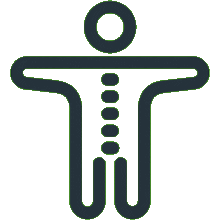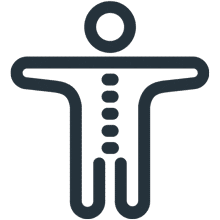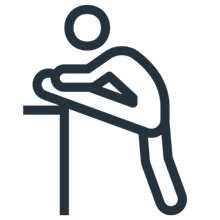
Sleep is often one of the underestimated and forgotten about essential ingredients of life.
Sleep is important for a number of areas including:
- Thinking clearly, being alert and keeping attention – this can decline after 16 hours of being awake. Short periods of sleep deprivation can also accumulate over time, for example two nights of 5 hours sleep has been found to significantly reduce performance.
- Memory consolidation – studying for an important test or have a big presentation the next day and consider staying up all night to prepare? This will likely not set you up for success as information that has been learnt is consolidated during sleep.
- Keeping our emotions in check – ever felt more emotional when you’re tired? Sleep also plays a role in the regulation of our emotions and psychological well-being. It can make us more sensitive to moments we wouldn’t normally react to if we haven’t had enough.
- Tissue healing, recovery & immune function – research has found that nutrition, metabolism and endocrine function can be negatively affected from sleep deprivation.
So how much sleep do we actually need?
The amount of sleep each person needs is variable however the general recommended amount is between 7-9 hours. However, adolescents should be having a minimum of 9 hours a night. Continuity of sleep and the time you go to bed is also important to focus on, not just the total amount of time you are asleep for.
The effects of not getting enough sleep
Not getting enough shut eye can have both short and long term consequences. Some you may be aware of and be able relate to, but others may surprise you. Those in the short term include:
- Increased fatigue, stress and low mood
- Reduced attention and cognitive performance
- Increased likelihood of getting sick – the body has reduced ability to produce proteins that fight against infection and inflammation, particularly relevant at the present time
- Increased weight gain – we all know the feeling of craving something sugary when we’re tired to give us a boost, but this doesn’t help the waistline
- Reduced athletic performance
Long term effects can include:
- Increased risk of developing diabetes
- High blood pressure
- Obesity
- Heart disease and
- Immune dysfunction
- and many more
Ways to improve your sleep quality:
What is great is there are a wide range of ways to improve your quality of sleep and these include:
- Reduce nighttime light exposure – this can be done by avoiding/minimising screen time three hours before sleep and reducing or removing anything that emits light in your bedroom i.e. alarm clocks, streetlights.
- Set a regular bed and wake up time – this teaches the body to release hormones that help with sleep and allows a regular routine to be developed, oversleeping can result in grogginess, irritability and loss of focus.
- Catch some rays – getting out in the sun helps with production of the sleep hormone, melatonin. This can include going for a walk, getting out in the garden or even enjoying a good book in the sunshine. Aim for a minimum of 5 minutes, however up to 20 minutes can provide greater benefit.
- Regular exercise and reducing sedentary behaviour – tie this together with getting outside and your two steps closer to a better night sleep. Try to avoid high intensity exercise before bed as this can have the reverse effect.
- Nourish yourself with the right fuel – make sure you’re not going to bed too full or too hungry. Low carb and low-fat diets can cause problems with sleep. Avoid caffeine after 2pm and alcohol as it can also negatively affect a good night sleep.
- Manage stress – techniques can be used such as deep breathing, practicing mindfulness, massage, meditation, yoga, tai chi and writing down your thoughts into a diary.
- Create a relaxing and comfortable sleep environment – have your room at a comfortable temperature, a comfortable bed and limit noise. It is important you keep your bed as a place for sleep and avoid doing work in bed as this allows the body to recognise it is time to rest.
- Wake up to natural light – this helps us to wake up properly and start the day.
- Limit fluids before bed – reduces the likelihood of sleep being broken during the night.
- Have a soak – the warm water of a bath or shower can help you to relax and reduce muscle tension.
If you find yourself having difficulty getting to sleep, try to avoid lying in bed for a prolonged period. Getting out of bed and doing activities such as reading, meditation, gentle stretching or listening to music are recommended until you feel tired again instead of reaching for your phone or watching TV.
What about napping?
So, if you haven’t got enough sleep during the night then what about a sneaky afternoon nap? This can help make up for those precious hours lost and also reverse some of the short-term consequences mentioned above caused by lack of sleep. Try to avoid your naps from being too long (no greater than 90 minutes) to limit you feeling worse and give yourself time to properly wake up. Having a regular nap time scheduled and avoiding having naps late in the day can also help.
Challenge for the Week:
A challenge for you this week is to establish a regular bed and wake up time. Keeping this consistent teaches the body to get in a regular routine to prepare itself for sleep but also to get up and into the day. After a week of doing this, reflect on any changes you have started to see with your quality of sleep and productivity through the day.
5 key takeaways:
- Aim to be getting 7-9 hours of sleep at night (9 hours+ for adolescents) – if you are not close to this, try gradually increasing the amount of sleep you’re getting by 30 minutes.
- Keep a regular bed and wake up time (even on weekends).
- Incorporate our other essential ingredients of life: a healthy mind, exercise and nutrition will be steppingstones to set you up for success with sleep.
- Take some time to get your sleep environment right.
- Napping can be a great way to rejuvenate yourself when timed right.
Brittney Trueman, PEAK Coach and Physiotherapist
 Sleep is often one of the underestimated and forgotten about essential ingredients of life.[embed]https://www.youtube.com/watch?v=A91CAI6khZM[/embed]
Sleep is often one of the underestimated and forgotten about essential ingredients of life.[embed]https://www.youtube.com/watch?v=A91CAI6khZM[/embed]Sleep is important for a number of areas including:
- Thinking clearly, being alert and keeping attention - this can decline after 16 hours of being awake. Short periods of sleep deprivation can also accumulate over time, for example two nights of 5 hours sleep has been found to significantly reduce performance.
- Memory consolidation - studying for an important test or have a big presentation the next day and consider staying up all night to prepare? This will likely not set you up for success as information that has been learnt is consolidated during sleep.
- Keeping our emotions in check - ever felt more emotional when you’re tired? Sleep also plays a role in the regulation of our emotions and psychological well-being. It can make us more sensitive to moments we wouldn’t normally react to if we haven’t had enough.
- Tissue healing, recovery & immune function - research has found that nutrition, metabolism and endocrine function can be negatively affected from sleep deprivation.
So how much sleep do we actually need?
The amount of sleep each person needs is variable however the general recommended amount is between 7-9 hours. However, adolescents should be having a minimum of 9 hours a night. Continuity of sleep and the time you go to bed is also important to focus on, not just the total amount of time you are asleep for.The effects of not getting enough sleep
Not getting enough shut eye can have both short and long term consequences. Some you may be aware of and be able relate to, but others may surprise you. Those in the short term include:- Increased fatigue, stress and low mood
- Reduced attention and cognitive performance
- Increased likelihood of getting sick - the body has reduced ability to produce proteins that fight against infection and inflammation, particularly relevant at the present time
- Increased weight gain - we all know the feeling of craving something sugary when we’re tired to give us a boost, but this doesn’t help the waistline
- Reduced athletic performance
Long term effects can include:
- Increased risk of developing diabetes
- High blood pressure
- Obesity
- Heart disease and
- Immune dysfunction
- and many more
Ways to improve your sleep quality:
What is great is there are a wide range of ways to improve your quality of sleep and these include:- Reduce nighttime light exposure - this can be done by avoiding/minimising screen time three hours before sleep and reducing or removing anything that emits light in your bedroom i.e. alarm clocks, streetlights.
- Set a regular bed and wake up time - this teaches the body to release hormones that help with sleep and allows a regular routine to be developed, oversleeping can result in grogginess, irritability and loss of focus.
- Catch some rays - getting out in the sun helps with production of the sleep hormone, melatonin. This can include going for a walk, getting out in the garden or even enjoying a good book in the sunshine. Aim for a minimum of 5 minutes, however up to 20 minutes can provide greater benefit.
- Regular exercise and reducing sedentary behaviour - tie this together with getting outside and your two steps closer to a better night sleep. Try to avoid high intensity exercise before bed as this can have the reverse effect.
- Nourish yourself with the right fuel - make sure you’re not going to bed too full or too hungry. Low carb and low-fat diets can cause problems with sleep. Avoid caffeine after 2pm and alcohol as it can also negatively affect a good night sleep.
- Manage stress - techniques can be used such as deep breathing, practicing mindfulness, massage, meditation, yoga, tai chi and writing down your thoughts into a diary.
- Create a relaxing and comfortable sleep environment - have your room at a comfortable temperature, a comfortable bed and limit noise. It is important you keep your bed as a place for sleep and avoid doing work in bed as this allows the body to recognise it is time to rest.
- Wake up to natural light - this helps us to wake up properly and start the day.
- Limit fluids before bed - reduces the likelihood of sleep being broken during the night.
- Have a soak - the warm water of a bath or shower can help you to relax and reduce muscle tension.
What about napping?
So, if you haven’t got enough sleep during the night then what about a sneaky afternoon nap? This can help make up for those precious hours lost and also reverse some of the short-term consequences mentioned above caused by lack of sleep. Try to avoid your naps from being too long (no greater than 90 minutes) to limit you feeling worse and give yourself time to properly wake up. Having a regular nap time scheduled and avoiding having naps late in the day can also help.Challenge for the Week:
A challenge for you this week is to establish a regular bed and wake up time. Keeping this consistent teaches the body to get in a regular routine to prepare itself for sleep but also to get up and into the day. After a week of doing this, reflect on any changes you have started to see with your quality of sleep and productivity through the day.5 key takeaways:
- Aim to be getting 7-9 hours of sleep at night (9 hours+ for adolescents) - if you are not close to this, try gradually increasing the amount of sleep you’re getting by 30 minutes.
- Keep a regular bed and wake up time (even on weekends).
- Incorporate our other essential ingredients of life: a healthy mind, exercise and nutrition will be steppingstones to set you up for success with sleep.
- Take some time to get your sleep environment right.
- Napping can be a great way to rejuvenate yourself when timed right.
Let's get started — How can we help?
Physiotherapy

Chiropractic

Podiatry

Massage Therapy

Women's Health Physiotherapy

Running Program Tailored To Your Goals

Joint Mobilisation

Active Release Technique

Exercise Prescription

Real Time Ultrasound Imaging

Spinal Manipulation

Functional Movement Screen

Knee Pain Treatment

Hamstring Strain Treatment

Hip Pain Treatment

Upper, Middle & Lower Back Pain

Neck Pain Treatment

Shoulder Pain & Rotator Cuff Tear

Can't find what you're after?
View all ServicesOr email the PEAK team at info@peakssc.com.au
Hawthorne
- Phone: (07) 3399 3318
- Fax: (07) 3319 6577
Address
5/171 Riding Road,Hawthorne, QLD, 4171 Get Directions
Opening Hours -
6 days per week
- Monday - Friday: 7:00 am - 8:00 pm
- Saturday: 7:00 am - 1:00 pm
To make a booking outside of business hours, please use our form by clicking here.
New Farm
- Phone: (07) 3399 4668
- Fax: (07) 3319 6577
Address
1/15 Lamington Street,New Farm, QLD, 4005 Get Directions
Opening Hours -
6 days per week
- Monday: 7:00 am - 8:00 pm
- Tuesday: 7:00 am - 8:00 pm
- Wednesday: 9:00 am - 8:00 pm
- Thursday: 10:00 am - 8:00 pm
- Friday: 7:00 am - 3:00 pm
- Saturday: 7:00 am - 3:00 pm
To make a booking outside of business hours, please use our form by clicking here.